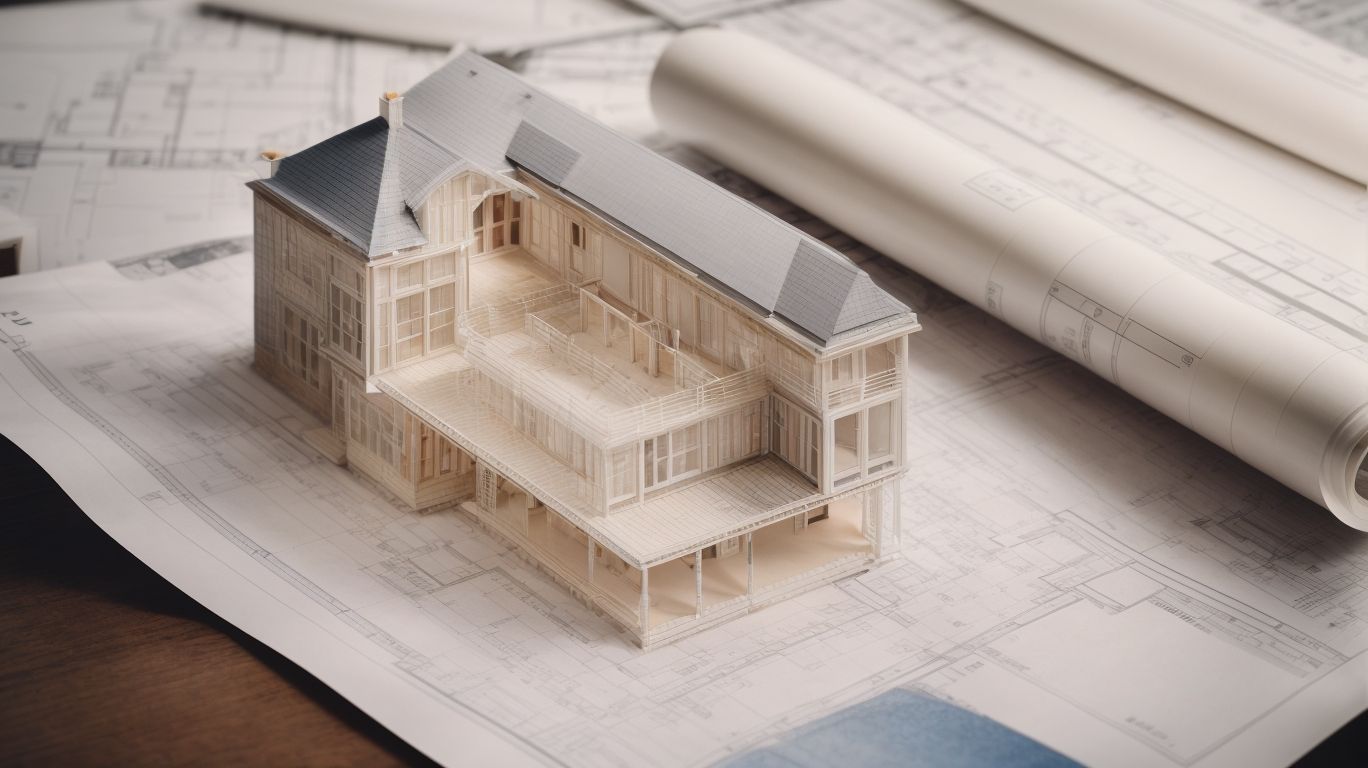
Why You Need a Structural Engineer for Your SF Home Renovation
Are you planning a renovation for your San Francisco home? If so, it’s crucial to consider the role of a structural engineer in the process. From ensuring safety and structural integrity to identifying potential issues and providing expert recommendations, a structural engineer plays a vital role in any home renovation project.
But how do you find a reliable engineer, and what qualifications should you look for? In this article, we’ll explore the importance of a structural engineer and what to expect during your SF home renovation.
What Is a Structural Engineer?
Structural engineers are professionals with specialized expertise and experience in designing and analyzing the structural integrity of buildings and other constructions.
They play a crucial role in the construction industry. Their main responsibility is to ensure the safety, efficiency, and durability of structures by carefully assessing the materials, components, and systems used in construction projects.
Using their expertise in physics and mathematics, structural engineers analyze the behavior of different building materials and design structures that can withstand environmental forces like wind, earthquakes, and loads. They work closely with architects, construction teams, and government agencies to ensure compliance with building codes and regulations, while also considering sustainability and environmental impact in their designs.
What Does a Structural Engineer Do?
A structural engineer plays a crucial role in construction projects by ensuring compliance with building codes, assessing safety measures, and implementing seismic retrofitting techniques when necessary.
Why Do You Need a Structural Engineer for Your SF Home Renovation?
Engaging a structural engineer for your SF home renovation is essential to ensure compliance with permits, regulations, and the proper assessment of load-bearing walls for structural integrity.
Ensures Safety and Structural Integrity
A structural engineer ensures the safety and structural integrity of buildings through rigorous inspections and professional consultation, prioritizing the well-being of occupants.
The role of structural engineers includes conducting thorough structural assessments and evaluating potential hazards, such as seismic activity or material degradation. They meticulously examine building designs and materials to identify vulnerabilities and suggest necessary reinforcements to fortify the structure.
During the construction phase, structural engineers provide crucial input to ensure compliance with safety standards and regulations. Their top priority is occupant safety, and they work tirelessly to mitigate risks and safeguard against any potential structural failures.
Identifies Potential Structural Issues
One of the key responsibilities of a structural engineer is to identify potential structural issues and implement necessary seismic retrofitting measures to mitigate risks.
Structural engineers leverage their expertise to conduct thorough inspections of buildings and infrastructure. They use advanced technologies and analytical methods to assess any signs of structural weakness.
Once potential issues are identified, structural engineers develop tailored solutions. This may include adding additional support structures or reinforcing existing elements to enhance the building’s ability to withstand seismic forces.
Their goal is to ensure the safety and longevity of structures. They take into account local building codes and geological considerations in their designs.
By integrating seismic retrofitting measures, structural engineers significantly reduce the vulnerability of buildings to potential seismic events. This ultimately protects lives and property.
Provides Expert Recommendations
Structural engineers offer expert recommendations on project management and suitable building materials to uphold the structural integrity of the renovation.
The advisory role of structural engineers includes evaluating the structural needs of a project and recommending ways to improve its stability and safety. This involves taking into account factors such as load-bearing capacities, environmental impact, and durability when selecting building materials. Structural engineers work closely with architects and construction teams to ensure that the project meets industry standards and codes. Their expertise also allows them to offer creative solutions for intricate structural issues, making a valuable contribution to the successful completion of renovation projects.
Helps with Permits and Regulations
A structural engineer is instrumental in navigating the complexities of permits, regulations, and ensuring compliance with renovation plans through professional consultation and expertise.
Structural engineers play a crucial role in assessing the structural integrity of buildings. They ensure that the buildings adhere to building codes and regulations, providing valuable insights into necessary modifications and upgrades. Their expertise also aids in streamlining the permit application process. They prepare detailed structural drawings and documentation, ultimately expediting the approval process.
In addition, structural engineers offer guidance on sustainable and cost-effective solutions. This contributes to the overall success of renovation projects while adhering to regulatory requirements.
What Are the Qualifications of a Structural Engineer?
The qualifications of a structural engineer encompass rigorous education, specialized training, licensure, and certification, coupled with extensive practical experience in the field.
Structural engineers typically hold a bachelor’s degree in civil engineering or a related field. They may also pursue advanced studies or specialized training in structural engineering.
Licensure is a mandatory requirement for structural engineers, which is attained by passing the Professional Engineer (PE) exam after gaining relevant work experience. Additionally, many structural engineers choose to obtain certifications from organizations like the Structural Engineering Certification Board to showcase their expertise and dedication to high professional standards.
Practical experience is gained through internships, co-op programs, and entry-level positions before advancing to project management roles.
Education and Training
Becoming a structural engineer involves pursuing advanced education and specialized training to acquire the necessary expertise in structural analysis and design.
This typically includes obtaining a bachelor’s degree in civil engineering or a related field, followed by a master’s degree or further specialization in structural engineering.
Through this educational journey, aspiring structural engineers develop a strong foundation in mathematics, physics, and engineering principles. Gaining practical experience through internships and co-op programs can further enhance their understanding of real-world structural challenges and solutions, preparing them for the intricacies of the profession.
Licensure and Certification
Licensure and certification are crucial for structural engineers to demonstrate proficiency in adhering to building codes and regulations, ensuring the safety and integrity of constructions.
Professional credentials, such as licensure and certification, indicate that an engineer has met the minimum requirements for education, experience, and professional competence. This includes passing rigorous examinations, ensuring they possess the necessary knowledge and skills to design and oversee the construction of safe and compliant structures.
Having these credentials provides assurance to clients and authorities that the engineer is committed to upholding ethical and professional standards, while also adhering to regulatory compliance. This ultimately contributes to the overall public safety and welfare.
Experience and Specialization
Practical experience and specialization in areas such as seismic retrofitting are pivotal for structural engineers to effectively address complex structural challenges and ensure resilient constructions.
This specialized knowledge equips professionals with the expertise to evaluate existing structures, identify potential weaknesses, and apply appropriate retrofitting techniques.
Through hands-on experience, engineers learn to develop innovative solutions that enhance structural integrity and ensure buildings can withstand seismic forces.
Specialization in seismic retrofitting allows engineers to navigate the intricacies of local building codes and regulations, ensuring that constructions meet rigorous safety standards.
Such expertise is crucial in creating buildings that are resilient and safeguard occupants during seismic events.
How Do You Find a Reliable Structural Engineer in SF?
Finding a reliable structural engineer in SF involves seeking recommendations, meticulously researching credentials, and scrutinizing client reviews to gauge their professional competence.
When searching for a structural engineer, it’s beneficial to seek referrals from trusted sources like architects, builders, or professional associations. This can help you find reputable and reliable professionals.
However, it’s important to evaluate the qualifications, certifications, and experience of potential engineers to ensure they have the necessary expertise for your project. You can also gain valuable insights by reading client testimonials and online reviews to assess their track record and level of customer satisfaction.
By following these steps, you can make an informed decision when selecting a structural engineer for your project in San Francisco.
Ask for Recommendations
Seeking recommendations from trusted sources within the SF community can yield valuable insights into the expertise and reliability of structural engineers for your renovation project.
This community-driven approach helps in identifying skilled professionals who have a track record of delivering quality and reliable services.
By engaging with the SF community, individuals can tap into a wealth of collective experiences and firsthand knowledge, ensuring that they connect with structural engineers who possess the necessary qualifications and capabilities for their specific renovation needs.
Involving the community in the search for structural engineers fosters a sense of trust and accountability, as individuals are more likely to receive referrals from sources they know and trust, which can ultimately contribute to a smoother and more successful renovation process.
Research Online
Conducting thorough online research allows you to assess the credentials and professional backgrounds of structural engineers in SF, enabling informed decision-making for your renovation needs.
You can utilize online platforms such as professional networking sites, industry-specific directories, and licensing boards’ websites to verify the qualifications, certifications, and past projects of structural engineers.
Reading client reviews and testimonials on various digital platforms provides insights into the quality of service and client satisfaction. These digital resources empower you to make well-informed choices when selecting a structural engineer for your project, ensuring that they possess the expertise and experience necessary to meet your specific requirements.
Check for Credentials and Reviews
Assessing the credentials and client reviews of structural engineers in SF is crucial for gauging their professionalism, expertise, and track record in delivering successful projects.
When selecting a structural engineer, it’s crucial for clients to thoroughly review their credentials to ensure they have the necessary qualifications, certifications, and experience to handle complex projects with precision. Additionally, client reviews offer valuable insights into the engineer’s communication, problem-solving abilities, and overall client satisfaction. This evaluation process helps clients make informed decisions and ultimately leads to successful and efficient project outcomes.
What Should You Expect from a Structural Engineer during Your SF Home Renovation?
During your SF home renovation, a structural engineer is expected to provide expert guidance on project management and recommend suitable building materials to uphold the structural integrity of the property.
Their involvement in the renovation process is crucial as they can assess the structural implications of design changes. This ensures that the architectural vision aligns with the property’s stability.
The engineer’s expertise in material selection helps in choosing durable and cost-effective construction materials. This is done to meet the project’s requirements while also considering environmental impact and sustainability factors. Their advisory role also extends to collaborating with other professionals, such as architects and contractors, to ensure a cohesive and well-coordinated renovation plan.




No Comments